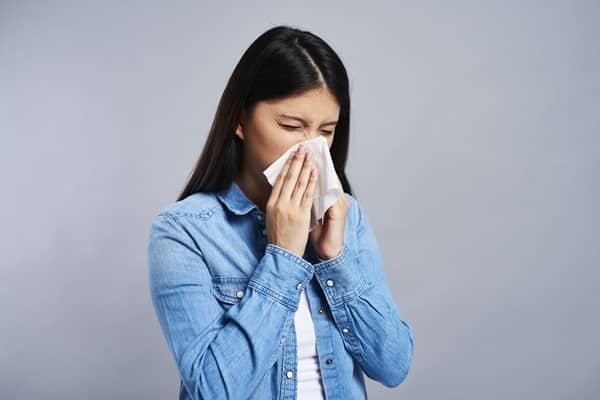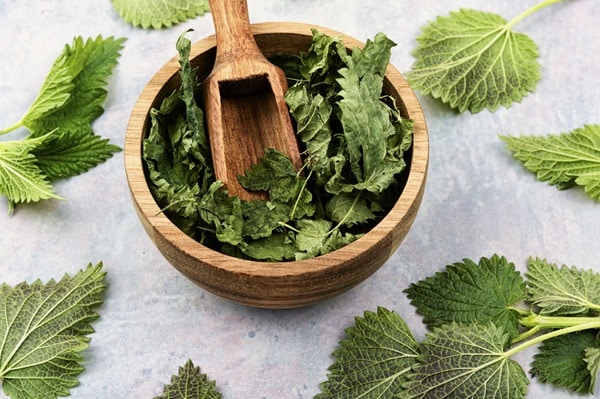Seasonal allergies, often perceived as a minor inconvenience, can significantly disrupt daily life for many. With a growing interest in natural remedies, exploring alternatives to conventional medicine has become more relevant than ever. This exploration delves into the world of natural solutions, offering insights and practical advice for those seeking relief from seasonal allergies. From dietary adjustments to herbal remedies, the focus is on harnessing nature’s power. This journey through natural remedies for seasonal allergies aims to provide a comprehensive guide for anyone looking to manage their symptoms more holistically.
Contents
Seasonal Allergies Demystified

Seasonal allergies, commonly triggered by pollen from trees, grasses, and weeds, affect a vast number of individuals worldwide. These allergies occur when the immune system overreacts to these airborne substances, mistaking them for harmful invaders. The body’s response includes the release of histamines, leading to symptoms like sneezing, itching, and congestion. Understanding these triggers and bodily reactions is crucial in managing symptoms effectively. Moreover, recognizing the patterns of these allergies, which often vary based on geographic location and time of year, can aid in preparing and implementing preventative strategies.
The impact of seasonal allergies extends beyond physical discomfort, often affecting emotional well-being and daily productivity. Allergy sufferers frequently experience disrupted sleep, decreased concentration, and a general feeling of malaise. This underscores the importance of finding effective management strategies. Traditional treatments, such as antihistamines and decongestants, offer relief but can have side effects. This has led many to seek alternative, more natural methods of managing their symptoms, paving the way for a deeper exploration of holistic remedies.
Dietary Strategies For Symptom Relief

The role of diet in managing seasonal allergy symptoms is increasingly recognized as significant. Certain foods can exacerbate allergy symptoms, while others might provide relief. For instance, foods rich in Vitamin C and Omega-3 fatty acids have been shown to possess anti-inflammatory properties, which can help reduce allergic reactions. Incorporating fruits like oranges and kiwi, along with fatty fish like salmon, into one’s diet can be beneficial. Additionally, foods containing quercetin, a natural antihistamine found in apples, berries, and onions, can help in stabilizing mast cells and reducing histamine release.
Conversely, certain foods can worsen allergy symptoms. Foods that trigger histamine release or contain allergens similar to pollen, such as certain fruits, nuts, and alcohol, should be consumed with caution by those with seasonal allergies. It’s also advisable to stay hydrated and avoid overly processed foods, as they can aggravate the body’s inflammatory response. Tailoring one’s diet to include allergy-friendly foods while avoiding potential triggers can play a crucial role in managing seasonal allergy symptoms more naturally and effectively.
Herbal Solutions

Exploring the realm of herbal remedies opens up a plethora of options for managing seasonal allergies. Herbs like stinging nettle have been used for centuries due to their natural antihistamine properties. When taken as a supplement or tea, stinging nettle can help alleviate sneezing, itching, and nasal congestion. Another powerful herb, quercetin, a flavonoid found in many plants and foods, has been shown to stabilize mast cells and reduce the release of histamine. Quercetin supplements, often combined with bromelain for increased absorption, can be an effective natural remedy for allergy symptoms.
Butterbur is another herb that has garnered attention for its potential in treating seasonal allergies. Studies have suggested that butterbur can be as effective as some over-the-counter antihistamines, without the drowsiness often associated with these medications. It’s important, however, to choose a butterbur supplement that is free of pyrrolizidine alkaloids, which can be harmful to the liver. As with any herbal remedy, it’s crucial to consult with a healthcare provider before starting any new supplement, especially for individuals with existing health conditions or those taking other medications.
Nasal Irrigation: A Clear Path

Nasal irrigation, a practice that involves flushing the nasal passages with a saline solution, has been a game-changer for many allergy sufferers. This simple yet effective technique helps clear out mucus and allergens from the nasal passages, providing relief from congestion, sneezing, and itching. Regular nasal irrigation can significantly reduce the need for antihistamines and other medications. There are various methods of nasal irrigation, including the use of a neti pot, a squeeze bottle, or a nasal spray, each allowing for a gentle rinse of the nasal cavities.
While nasal irrigation is generally safe, it’s important to use the correct solution – ideally a sterile, isotonic saline solution – to avoid irritation. It’s also crucial to keep the irrigation device clean to prevent any risk of infection. For those new to nasal irrigation, it may feel a bit unusual at first, but many find it to be an incredibly effective way to manage their allergy symptoms. As with any new treatment, it’s advisable to consult with a healthcare professional to ensure it’s appropriate for your specific needs.
Acupuncture: A Pointed Approach

Acupuncture, a key component of traditional Chinese medicine, has emerged as a promising option for allergy relief. This ancient practice involves the insertion of thin needles into specific points on the body, aiming to restore balance and promote natural healing. For allergy sufferers, acupuncture is believed to modulate the immune system, reducing the overactive response to allergens. Studies have shown that regular acupuncture sessions can lead to a significant reduction in allergy symptoms, such as nasal congestion, sneezing, and itchy eyes. This makes it an attractive option for those seeking a non-pharmaceutical approach to managing their allergies.
The effectiveness of acupuncture in treating seasonal allergies is often enhanced when combined with other traditional Chinese medicine practices, such as herbal treatments. Patients typically undergo a series of acupuncture sessions, with many reporting improvements in their symptoms as the treatment progresses. It’s essential to seek treatment from a licensed and experienced acupuncturist to ensure safety and effectiveness. While acupuncture is generally considered safe, it’s crucial for individuals to discuss this treatment option with their healthcare provider, especially if they have certain health conditions or are on medication.
Lifestyle Adjustments

Making lifestyle adjustments can play a significant role in managing seasonal allergies. Simple changes in daily habits and the home environment can significantly reduce exposure to allergens and alleviate symptoms. For instance, using air purifiers with HEPA filters can help remove pollen and other allergens from indoor air. Regular cleaning to reduce dust and pet dander, as well as using hypoallergenic bedding, can also make a noticeable difference. Additionally, staying indoors on days with high pollen counts and showering after being outside can help minimize allergen exposure.
Beyond environmental changes, personal health and wellness practices are equally important. Regular exercise can strengthen the immune system, potentially reducing the severity of allergic reactions. Stress management techniques, such as yoga and meditation, can also be beneficial, as stress can exacerbate allergy symptoms. Adequate sleep is crucial, too, as it helps the body recover and strengthens immune function. These lifestyle adjustments, while seemingly small, can collectively have a profound impact on reducing the discomfort caused by seasonal allergies.
Aromatherapy: Breathing Easier

Aromatherapy, the use of essential oils for therapeutic purposes, offers a natural way to alleviate allergy symptoms. Certain essential oils, such as peppermint, eucalyptus, and lavender, have properties that can help soothe respiratory symptoms associated with allergies. Peppermint oil, for example, is known for its menthol content, which can help clear nasal passages and reduce congestion. Eucalyptus oil has anti-inflammatory and decongestant properties, making it beneficial for those with nasal allergies. Lavender oil, renowned for its calming effects, can also help reduce allergic inflammation and is particularly useful for those whose allergies disrupt their sleep.
When using essential oils for allergies, it’s important to choose high-quality, pure oils and use them safely. They can be diffused into the air, inhaled directly (in moderation), or applied topically when diluted with a carrier oil. It’s crucial to perform a patch test before applying any oil to the skin to ensure there’s no allergic reaction. While aromatherapy can be a powerful tool in managing allergy symptoms, it should be used as a complementary treatment and not as a replacement for medical advice or prescribed allergy medications.
Take Control Of Your Seasonal Allergies Naturally
Embrace a natural approach to remedies for seasonal allergies and experience the difference it can make in your life. By exploring and integrating holistic remedies, you open the door to more effective and personalized allergy relief. Just remember it’s important to consult with healthcare professionals to ensure these methods align with your specific needs. Begin your journey towards a more comfortable and enjoyable life, free from the constraints of seasonal allergies. Take the first step today towards a natural and empowering way of managing your health.


